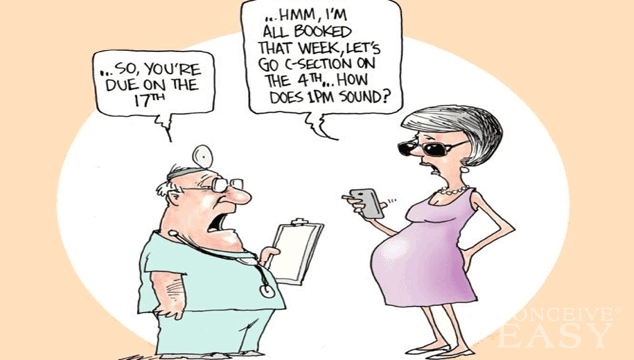
In this day and age that we live in, everything is planned. These days, even births are planned. Scheduling a c-section well before the birth of a baby is now commonplace. C-sections can be planned for medical reasons, if the doctor thinks there are circumstances that could hurt the mother or the baby if it were delivered vaginally. Claim Your 20 Free Pregnancy Tests – Click Here
Large babies are usually delivered via planned c-section, and babies that are breech are often planned c-sections as well. If a mother has a chronic health problem that could be affected by labor, like high blood pressure or diabetes, a c-section might be planned.

Another trend that is rapidly growing is the optional c-section trend. Many pregnant women are now requesting to schedule their c-sections, when there is no medical reason for it. Doctors think that the reason for the growing popularity of planned c-sections is because women want more control over when they will give birth.
Some women are afraid of the birth process, and think having a c-section is an easy way to avoid all the nasties and scaries that come along with giving birth the old fashioned way. Victoria Beckham is famous for having four planned c-sections, leaving the tabloids to dub her “too posh to push.”

Having a c-section, whether scheduled for medical or personal reasons, is a decision that should not be taken lightly. Of course, there are always risks with a vaginal birth, but there are also serious risks that can come along with c-sections as well. Along with c-sections comes a risk of infection of the uterus or the incision site, blood loss, blood clots in the lungs or legs, and bad reactions to the anesthesia, which can include nausea, headaches, and vomiting.

The actual c-section procedure is pretty simple and straightforward. An IV is given to give fluids and medicine. The mother will then get either a spinal or epidural to numb her legs and belly.
After the mother has been numbed, the doctor will make the incision. The doctor will carefully lift the baby out, remove the placenta, and stitch the mother back up. Simple as that.
Mothers who have a c-section usually have to stay in the hospital a day or two longer than mothers who have a vaginal birth, but other than that, things are usually pretty much the same. It might take up to four weeks for a mom to fully recover from a c-section.










Comments